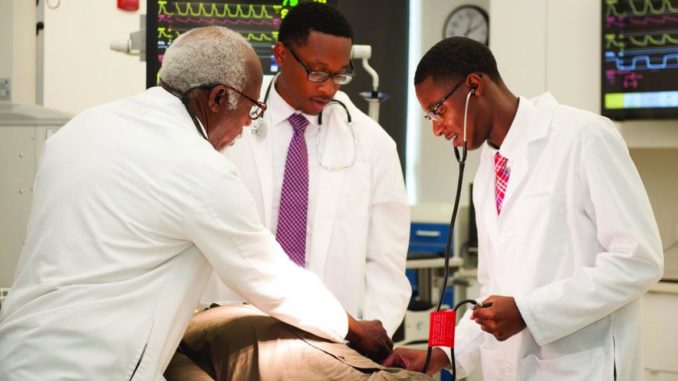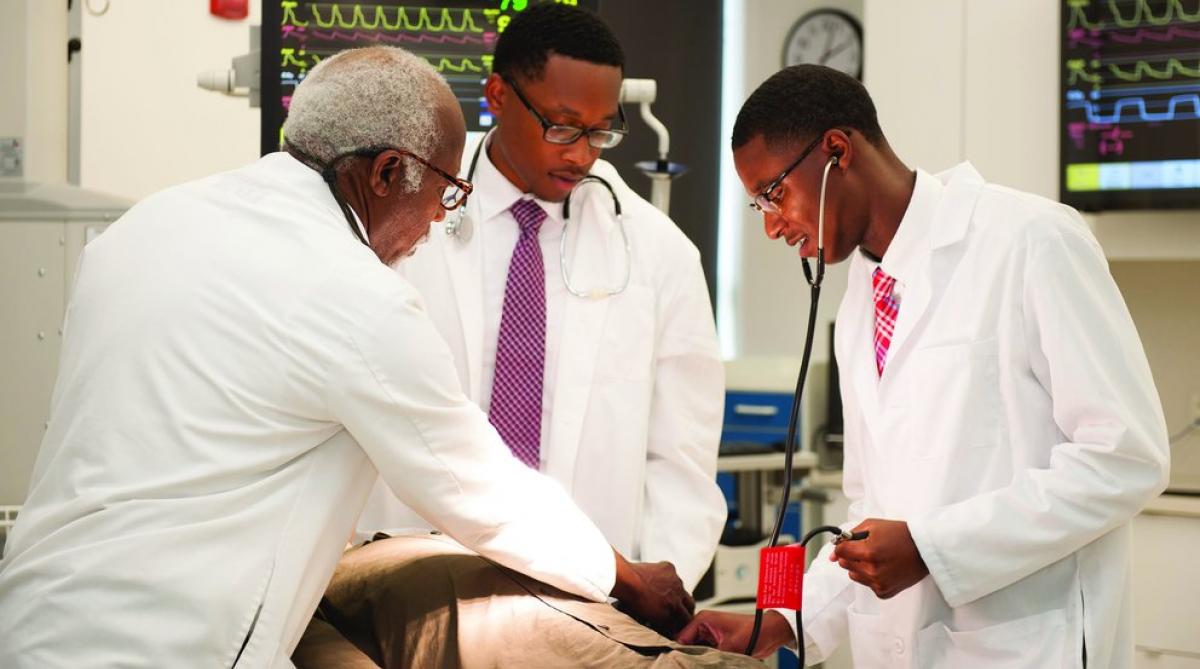

Most personally notable among the African-American mentors in my life was my father. I’ll never forget the time I came home from my freshman semester in college – a little shell-shocked at my program’s rigorous course-load, my head spinning at the thought of the long academic road ahead. My dad asked me: “Why do you want to do this? Why do you want to be a doctor?” It’s a simple question. But his point to me was really in the question itself, not necessarily in my answer. He told me: “If you want to be a doctor, you can do it. But you must do it for yourself. Don’t do it for me, or your mother or anybody else. And if you’re doing it because you want it, then you must figure out a way to get it done.”
One of the best pieces of advice I ever received from my father was to start with “why.” It motivated me, and I figured it out. I was able to excel in my studies from then on. It wasn’t easy, but I was anchored by the fact that I was pursing a career in medicine because I wanted it – and I was going to do the best at achieving it that I possibly could.
But there is still so much work to do. As I write this, African-American people have some of the worst health outcomes and the highest mortality rates in our country. According to the most current data from the Centers for Disease Control and Prevention, African-Americans over age 25 have the lowest life expectancy rate, compared to any other race or ethnicity in America. Though that life expectancy rate has gone up since the year 2000, it’s still the lowest and not a pretty statistic to ponder. And it begs the question: If more people of African-American heritage were given opportunities in medicine as researchers, instructors and clinicians, could we reverse that trend? If more African-Americans were included in clinical trials as research subjects, what progress could be made? How many more lives could be positively affected?
I’m a sports neurologist, and I firmly believe that we can use the social capital of sports to expose young people to a number of issues, habits and opportunities that change lives for the better. The benefits of exercise on health and wellness, and the importance of brain health across the lifespan, are examples. Another is exposure to careers in medicine at a young age. Sports can be the gateway. There are growing numbers of careers in sports that allow individuals to still be part of the team or organization, without having to be the athlete on the field or court. Health care-related professions as the team physician, athletic trainer or sports psychologist allow the opportunity to combine interests and talents.Plus, they don’t limit youth to dreams of careers that are based solely on what they can do physically.
Increasingly, sports is being used to expose young people to analytics and other STEM-related activities that may blossom into productive careers – many of which eventually lead to positive contributions to health and wellness for both individuals and populations as a whole.
Medicine desperately needs the minds and hearts, as well as the physical talents, of our young African-American generations. They hold the key to the future of health for African-American populations – men, women, infants and children. Unlocking these doors to medicine for our youth is one of my biggest passions, and I can’t wait to see what glorious things they will accomplish once we hand them the keys.


Be the first to comment